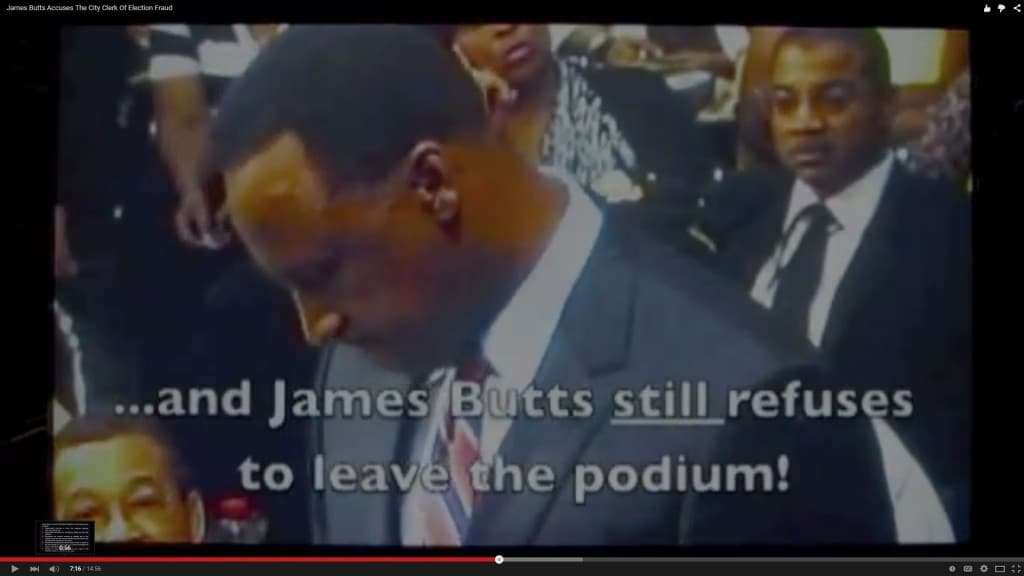The Volokh Conspiracy
Mostly law professors | Sometimes contrarian | Often libertarian | Always independent
City loses copyright lawsuit against critic who posted city council video clips (with commentary) on YouTube

I blogged about this case in June, but yesterday the federal district court handed down its ruling (City of Inglewood v. Teixeira), so I thought I'd revisit the matter.
Joseph Teixeira has long criticized the mayor and officials in the City of Inglewood, a small municipality in the heart of Los Angeles - including by posting excerpts from city council video recordings, overlaid with his own commentary that supposedly shows that the officials are behaving badly. Three of the videos are here, here and here:
The city responded by suing him for supposedly infringing the city's copyright in its council videos, but yesterday the district court threw out the city's lawsuit.
1. The court held that, under California law (see, e.g., County of Santa Clara v. Superior Court (Cal. Ct. App. 2009)), cities can't claim copyright in public records. And while the city claims that this provision is trumped by federal copyright law, the court rejected that argument - federal law treats local governments as political subdivisions of the state, and a state has the power to control what its subdivisions do (including which federal rights they claim).
2. The court held that, under federal copyright law, the use of the council meeting videos is fair use. It's political commentary that quotes the contents of the videos and comments on what is said there. The city claims that Teixeira has some commercial purpose for the videos (though the precise purpose is unclear from its papers, and Teixeira denies it); but the court held that, even if the videos were commercial, they would still be fair use, because they are "quintessential transformative works for the purpose of criticism and commentary on matters of public concern."
The videos are fundamentally factual, rather than being creative expression, which makes the fair use case stronger. The videos take only portions of the whole city council meetings (though this factor is less significant when the defendant is commenting on the original works, and especially when the original works have so little original creative content).
And, most important, the videos don't compete with Inglewood's distribution of its videos. Under California public records law, the city must make public records "available to any person upon payment of fees covering direct costs of duplication," so there's no way that Inglewood can profit from distributing the videos in the first place, or even recoup the fixed costs of creating the recordings. Plus in any event, people who want normal Inglewood City Council videos wouldn't find Teixeira's edited versions to be adequate substitutes, and vice versa. All these fair use factors cut in favor of Teixeira.
Read the whole opinion, if you're interested. I think the court got this one quite right, and the city would be unwise to spend more money appealing (though the city was unwise to sue in the first place, and maybe this unwisdom will continue).
My sense is that the court thought the city's case was very weak. It refers to some of the city's arguments as "plainly wrong" and "plainly incorrect," for instance, and says Teixeira's activities "plainly fall within the protections of fair use" and are "clearly protected by the fair use doctrine" - not harsh rhetoric by the standards of comment threads, to be sure, but in a court opinion this is a marker that the city's arguments were seen as not just mistaken but also pretty obviously wrong.
And this is relevant to whether the defendant will be able to recover attorney fees, which are available in many copyright cases, especially when the plaintiff's case is as weak as this one. "[A] successful defense of a copyright infringement action may further the policies of the Copyright Act every bit as much as a successful prosecution of an infringement claim by the holder of a copyright," and offering attorney fees to prevailing defendants, the Supreme Court has held, therefore promotes such successful defenses. And "[a]ttorneys' fees are recoverable by pro bono attorneys to the same extent that they are recoverable by attorneys who charge for their services."
In deciding whether to order a losing plaintiff to pay a victorious defendant's attorney fees, courts are supposed to consider
(1) the degree of success obtained; (2) frivolousness; (3) motivation; (4) the objective unreasonableness of the losing party's factual and legal arguments; and (5) the need, in particular circumstances, to advance considerations of compensation and deterrence.
While it's hard to predict how these factors will come out, here they strike me as cutting in favor of ordering Inglewood to pay Teixeira's attorneys. Inglewood taxpayers might thus have to foot the bill for their elected officials' thin skins, not only by paying the city's own outside counsel but also by paying the defense lawyers' fees.
Congratulations, by the way, to Thomas R. Burke, Dan Laidman, and Diana Palacios of Davis Wright Tremaine LLP for winning the case.


Show Comments (0)